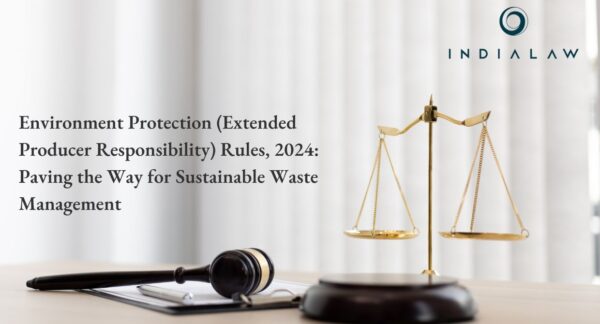Supreme Court Upholds Natural Justice: Criticizes National Green Tribunal for passing it’s decision on Outsourced Opinion of the experts


In a decision reinforcing the principles of natural justice, the Supreme Court of India recently quashed orders of the National Green Tribunal (NGT) penalizing Grasim Industries Limited for alleged environmental violations. The case, Civil Appeals Nos. 1711-1712 of 2021, focused on the procedural lapses in the NGT’s handling of the matter and the improper imposition of penalties amounting to Rs. 75 lakh.
Table of Contents
The Case Background
Grasim Industries, a prominent industrial player, was penalized by the NGT for two key alleged violations:
1. Failing to install online flow meters in CS2 stacks to monitor emissions.
2. Environmental hazards arising from acid by-products generated in their operations.
The penalties were based on findings submitted by a Joint Committee appointed by the NGT, which investigated the plant operations in response to complaints by the Madhya Pradesh Pollution Control Board and other respondents. The NGT’s decision prompted Grasim Industries to challenge the order before the Supreme Court, citing significant procedural shortcomings.
Arguments on Both Side
Grasim Industries’ Contentions:
The appellant strongly contested the NGT’s findings and procedures, arguing that:
– It was not made a party to the proceedings despite being the affected entity.
– An application to be impleaded in the matter was rejected, leaving them without an opportunity to present their side.
– The Joint Committee prepared its report without giving notice to Grasim Industries or allowing the company to respond to adverse findings.
– The penalties were imposed without adhering to established principles of natural justice.
Respondents’ Defense:
The Madhya Pradesh Pollution Control Board and other respondents relied on the findings of the Joint Committee. They supported the NGT’s conclusion that the company’s operations had violated environmental standards, warranting the penalties imposed.
Supreme Court’s Observations
The Supreme Court relied on established precedents to emphasize its points. In particular, it cited the case of Municipal Corporation of Greater Mumbai v. Ankita Sinha and Others (2022) 13 SCC 401, where it was held that tribunals must adhere to the principles of natural justice and ensure affected parties are given a fair hearing. The Court also referred to *Kantha Vibhag Yuva Koli Samaj Parivartan Trust and Others v. State of Gujarat and Others* (2022 SCC OnLine SC 120), which reiterated that tribunals must independently assess evidence and not rely solely on outsourced expert opinions.
The Supreme Court’s judgment, delivered by Justice B.R. Gavai and Justice K.V. Viswanathan, was a scathing critique of the procedural lapses in the NGT’s approach. Key observations included:
-Violation of Natural Justice: The NGT’s refusal to implead Grasim Industries or provide them an opportunity to be heard was a clear violation of established legal principles.
– Improper Reliance on Outsourced Reports: The Court criticized the NGT for basing its decision solely on the Joint Committee’s report. It emphasized that tribunals must independently evaluate facts and cannot rely entirely on outsourced opinions.
– Glaring Errors in Process: The Supreme Court held that the NGT could not proceed without making the affected party—Grasim Industries—a respondent to the proceedings.
The Final Verdict
The Supreme Court set aside the NGT’s orders, directing that the matter be reconsidered. It explicitly instructed the NGT to:
1. Implead Grasim Industries as a party to the proceedings.
2. Ensure compliance with natural justice principles in any future actions.
Conclusion
This case is a powerful reminder of the foundational importance of natural justice in judicial and quasi-judicial proceedings. The Supreme Court’s decision not only vindicates Grasim Industries but also highlights the need for tribunals like the NGT to adhere strictly to fair procedure and impartial adjudication. The judgment sets a precedent that reinforces accountability and transparency, ensuring that no party is condemned unheard. In the broader context, it also highlights the delicate balance between environmental governance and the rights of industrial stakeholders.
For further details write to contact@indialaw.in



